The classroom training is performed at the JATC’s state-of-the-art training facilities in Lanham, Maryland, Roanoke, Virginia and Manassas, Virginia. The facilities contain hands-on labs that teach apprentices how to perform the skills they’ll need on the job site.

Electronics Lab

Each lab consists of 20 stations with an electronic breadboard trainer, oscilloscope, and digital multimeter at each station. The electronic trainers have built in resistors, capacitors, inductors, SCRs, UJTs, as well as a DC and AC voltage supply. While in this lab, apprentices review the DC and AC theories.
Fire Alarm Lab

Apprentices utilize these trainers to learn how to wire different types of systems using the latest technology. The JATC offers three Skill Improvement classes, Fire Alarm 1 (Introduction to Fire Alarm Systems), Fire Alarm 2 (Introduction to NICET certification), or Fire Alarm 3 (Troubleshooting and Maintaining Fire Alarm Systems). This lab also has several fire alarm systems that utilize older technology. These skills are necessary to teach electricians who service old fire alarm systems.
Optical Fiber Lab

The classes held in this lab teach fiber optic theory, fiber optic splicing and connectorization using both mechanical fiber optic kits and a fusion splicer, and fiber optic testing using a light source and OTDR.
BISCI Certified Training Lab

Telecommunication apprentices will attend BISCI training. This lab meets all of the BISCI standards for a certified training site. The lab is fully equipped with two telephone closets (T.C.s), stations where individuals pull cable and terminate jacks, and testing equipment where individuals test the cable after termination.
Mechanical Pipe Bending Lab

This lab is fully equipped with five 1818 Greenlee “Chicago” type ratchet benders and one Greenlee 555 mechanical bender. With these benders, apprentices receive numerous hours of hands-on-training. We currently offer a skill improvement course for Journeymen who wish to sharpen their skills in the art of conduit bending.
Wiring Lab

This lab is used to teach the wiring of circuits; i.e. wiring of receptacles, wiring of single pole, three-way, and four-way switches.
Motor Control Lab

Our magnetic motor control labs feature 20 24V hands-on trainers. Each magnetic control station features three magnetic starters, three start buttons, three stop buttons, five limit switches, two timers, and a control relay.
Welding Lab

Oxyacetylene, electrical arc, tungsten inert gas, and basic MIG welding are taught in our welding lab. Apprentices utilize this new equipment and put into practice the techniques learned in the classroom. Particular attention is given to the safety of using all this equipment.
High Voltage Cable Splicing Lab

The JATC has taught high voltage cable splicing to its journeyman members since the 1970s. In this lab, individuals learn hand-taped splices and terminations, tee splices and cable splicing safety, high voltage testing, and fault locating. An individual would have to take this course twice before being able to take a test to certify as a high-voltage cable splicer.
Computer Lab

The apprentices utilize the computer lab and the various electrical tutoring software programs which are installed on the network. These programs consist of a National Electrical Code Testing Preparation, Electrical Wiring Program, Motor Control Programs, AutoCAD and a full size plotter.
Industrial Motor Control Center Lab

The industrial motor control center features a 3 cubicle M.C.C, a 3 phase 208V to 480V step-up transformer, and 5 motors. All the cubicles have handsoff-auto switches and start/stop buttons. One cubicle provides a variable frequency drive and forward/reversing control of one of the 5 motors.
PLC Lab

Apprentices utilize 20 stations of Allen Bradley SLC500 programmable logic controllers. RS 232 communications link the controllers to laptops which use RS Logix software by Rockwell Software. Apprentices receive 16 hours of training in this lab. Advanced night school students take a 42-hour training course.
VFD Lab

Variable Frequency Drives are widely used across the industry to control the speed of motors for HVAC fans and pumps. The VFD lab consists of 20 Square D Altivar 68-speed drives where apprentices learn to operate, set up, and program VFDs to control the speed of three-phase motors.
Power Quality Lab

Two Square D circuit monitors (CM 4000) power quality meters monitor the power consumption of the entire training facility and the PLC and VFD labs. The meters monitor transient voltage and harmonics as well as display waveforms. Advanced night school students can choose a 42 hour elective course.
Lonworks Labs

The JATC prepares its apprentices for the latest green technology. Apprentices study building automation on three Lonworks system trainers. They learn about energy and building management as they program lighting and power systems in an eight-hour course.
Instrumentation Lab

This lab contains two portable instrumentation trainers and is a certified EPRI Level I and II testing site. Apprentices take an eight-hour introductory course, while advanced night school students can choose a 42-hour elective course.
Fire Alarm (F.A.) Wall

This wall simulates a four-story commercial building with a working fire alarm system. The system includes smoke detectors, pull stations, elevator recall, and fan shut down.
Residential Technologies Wall

This working display of the modern home features power, lighting and data communications systems. Apprentices learn about radio frequency (RF) controlled lighting, intercom systems, closed circuit TV (CCTV) for security and voice/data systems to each room.
